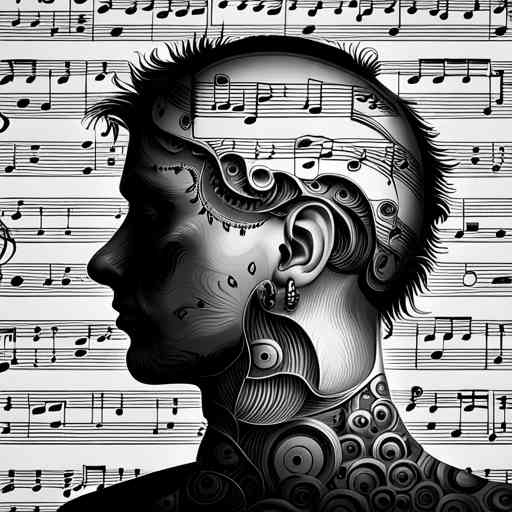The Magic Symphony: Music as a Programming Language for the Human Mind
 From time immemorial, music has been a pivotal element of human existence. From the ancient tribes dancing to the rhythmic tunes of nature to the modern-day melody enthusiast tapping their feet to a well-orchestrated symphony, the power of music has always been undeniable. Songs have the uncanny ability to get lodged in our heads, making us move and altering our emotions. What is it that makes music so powerful and influential? To answer this, let's think of music as a programming language - not for computers, but for the human mind.
From time immemorial, music has been a pivotal element of human existence. From the ancient tribes dancing to the rhythmic tunes of nature to the modern-day melody enthusiast tapping their feet to a well-orchestrated symphony, the power of music has always been undeniable. Songs have the uncanny ability to get lodged in our heads, making us move and altering our emotions. What is it that makes music so powerful and influential? To answer this, let's think of music as a programming language - not for computers, but for the human mind.
Decoding the Melody: Understanding the Language of Music
Before we delve into the concept of music as a mind's programming language, we need to understand the structure of music itself. At its core, music consists of two key elements: rhythm and melody. Rhythm, or the pattern of sound, forms the backbone of any song, and melody, or the sequence of notes, breathes life into the skeleton. Just like a programming language consists of syntax and semantics, music too, has its language.
In music, rhythm is akin to syntax in programming - providing a specific order and structure. Melody, on the other hand, corresponds to semantics - conveying meaning and creating an emotional impact. It's the combination of these elements that allows music to communicate directly with our brains, bypassing the cognitive filters and interacting with our unconscious minds.
Running the Program: How Music Influences Us
In the world of programming, developers write codes to manipulate data, solve problems, and create virtual worlds. Similarly, when we listen to music, the rhythmic patterns and melodious notes work as a code, instructing our brains to respond in specific ways.
When these musical codes are executed, they stimulate various parts of our brain, triggering a range of physiological and emotional responses. They can cause our heart rate to synchronize with the rhythm, our feet to move to the beat, and even release neurochemicals like dopamine, a hormone associated with pleasure and reward. In short, music can program us to feel and act in certain ways, often without us being consciously aware of it.
The Power and Mystery of Music
Music has been around as long as human history, and it's no coincidence that it wields such tremendous power over us. From an evolutionary perspective, our ancestors who could work together in rhythm might have had an advantage in activities like hunting or gathering, leading to the development of our deep-rooted response to music. Today, with advanced technology, we can explore and manipulate the effects of music on our brains like never before, even though its full potential remains largely untapped.
The ability to control this musical language is highly valued and can lead to great wealth and influence, as evident in the world of music production. Musicians and producers often spend years studying and mastering the language of music, not only to create appealing melodies but also to evoke the desired emotional responses in their listeners.
The term 'music' itself is derived from the Greek word 'mousike' meaning 'art of the Muses'. In Greek mythology, the Muses were the goddesses of inspiration in literature, science, and the arts. Hence, music, the 'art of the Muses', stands as a testament to its transformative power and influence over human cognition, behavior, and culture.
The Enthralling Symphony of the Mind
Music, in its essence, is a universal language. Yet, it's not just a language that we use to express ourselves or communicate with others. It is a programming language for our minds, capable of influencing and altering our moods, behaviors, and even our physiology. As we continue to delve into the mysteries of music and the brain, we may yet uncover more about this fascinating relationship. For now, we can bask in the joy, solace, and inspiration music brings, continuing to marvel at the wondrous symphony of the mind.